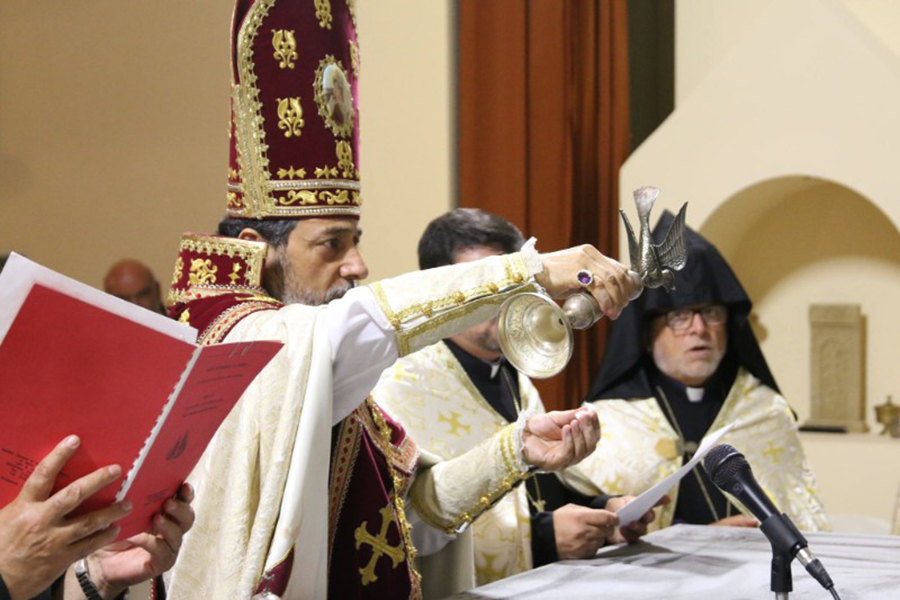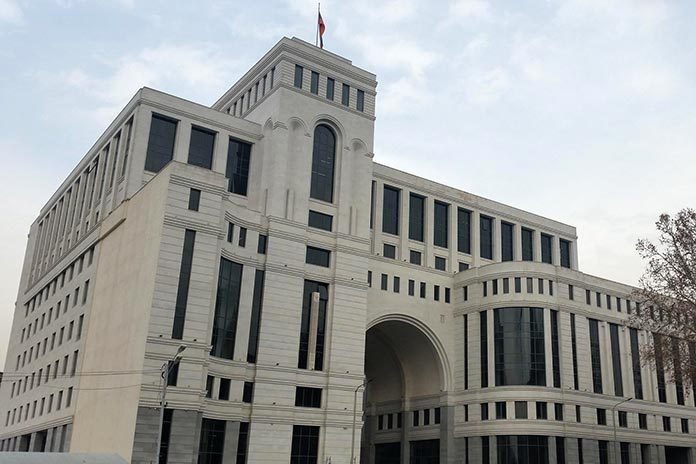YEREVAN (RFE/RL) — A leading Armenian civic activist believes the government’s failure to honor its landmark deal with the opposition to introduce anti-fraud mechanisms in time for next year’s parliamentary elections will cause new strong disappointment of the West.
In a development welcomed by the European Union and other Western organizations the Armenian government and the opposition agreed in June to amend the newly adopted Electoral Code, introducing a number of safeguards sought by opposition groups and civil society organizations.
The most important of those amendments call for the introduction of a biometric registry of voters meant to prevent multiple voting by government loyalists. This would be done through electronic machines that check voters’ identity through new, plastic ID cards containing their fingerprints.
The Armenian government also agreed to give opposition parties, non-partisan observers and media greater access to the lists of voters who will have cast ballots during the next parliamentary elections due in April 2017. In addition, the authorities would install video cameras in all of Armenia’s 2,000 or so polling stations and ensure live broadcasts of voting and ballot counting there through the Internet.
The total cost of the special equipment needed for these anti-fraud measures was estimated at 16 million Euros ($17.8 million). The government made it clear from the outset that the compromise deal will be annulled unless foreign donors provide the bulk of this sum by September 1.
Representatives of Armenia’s opposition parties, who have been in contact with government officials on the course of the introduction of the mechanisms, revealed recently that the authorities were unlikely to implement most of the promised mechanisms because of “technical problems”.
Naira Zohrabian, the leader of the parliamentary opposition Prosperous Armenia Party, which was one of the parties to the deal with the government, in particular, accused the authorities of deliberately thwarting the process despite the availability of extra-budgetary funding pledged by foreign donors.She claimed that the government feared that the introduction of such mechanisms would indeed block all loopholes for committing electoral fraud. Government representatives, however, rejected the claim, arguing that the introduction of such mechanisms as fingerprint registration of voters would be technically impossible to complete within the months remaining before the next general elections.


Head of the Association of Informed Citizens Daniel Ioannisian also thinks that the authorities are trying to scuttle the deal. In his opinion, if this failure happens, it will prove even be more disappointing to the West than Armenia’s U-turn on its planned association deal with the European Union in 2013 and its later accession to the Russian-led economic grouping. In this case, Ioannisian stressed, officials in Brussels would not understand it because unlike the failed EU association process where Armenia was “under Russia’s pressure”, “this is purely the result of the Armenian government’s lacking political will.”
“The government was trying to scuttle these changes, citing the lack of money or other circumstances. The international community and we were trying in every way to prevent this failure. In the end, the government found a way out. Citing a Polish company, it prevented the introduction of the agreed anti-fraud mechanisms,” the activist said.
According to opposition representatives, as an alternative to the mentioned anti-fraud mechanisms the government now suggests discussing a post-election publication of signed voter lists.
Opposition parties in Armenia have for years sought this change, claiming that otherwise it is difficult to verify their longstanding claim that the authorities use the data of citizens absent from the country to rig the elections. Government officials, meanwhile, have argued that post-election publication of voter lists constitutes a breach of the principles of secret ballot and personal secrecy.
It is still unclear in what way the government is going to implement the change in order to address its concerns regarding the rights of citizens and whether this change will fully restore the situation that existed before 2003 when the Central Electoral Commission stopped the publication of signed voter lists after elections following a relevant amendment.
The 2017 elections will come one year before Armenia switches to a parliamentary system of government. They will determine who will govern the country after President Serzh Sarkisian completes his final term in 2018.










